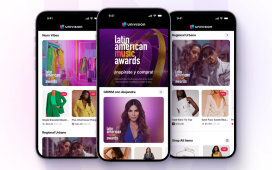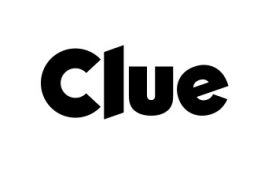Amid the increase of anti-Asian racism and the disproportionate impact of COVID-19 on American communities of color, Endemol Shine North America’s diversity and inclusion committee, launched last year, held its first virtual event for its offices in the U.S., Mexico and Brazil to discuss how the entertainment industry can address these issues.
The panel featured Marva Smalls, ViacomCBS’ global head of inclusion and executive VP of public affairs, CNN contributor and South China Morning Post columnist Jeff Yang, and Madison Media Management CEO and chairman and former NBCUniversal exec Paula Madison. (Madison was unable to join due to connectivity issues, but spoke to Variety after the event.)
Though the outbreak was, early on, called “the great equalizer,” Endemol Shine North America chief executive Chris Abrego noted that characterization “couldn’t be anything further from the truth.”
The company’s diversity and inclusion committee heads Marisa Hammonds and Tara McCullough cited recent reports of people of color being infected and dying at higher rates than white Americans, and incidences of anti-Asian discrimination almost doubling in the last three months versus the same period of time in 2019.
As a result of the outbreak of the coronavirus, which originated in China, Asian Americans have encountered increased instances of racially charged harassment and physical assault.
“We know far too well, when pandemics happen that there are communities that easily become a scapegoat, whether it’s Latinx for swine flu, African Americans for Ebola, the LGBT community for AIDS, and now the Asian American community for COVID,” said Smalls. “And so it does take the whole of the company, both in utilizing essential and external assets to draw attention, to become part of the conversation to disrupt the bias that exists, and to elevate the conversation.”
While Asian Americans have in recent years made gains in an entertainment industry that is becoming more inclusive, Yang — whose son, Hudson, was one of the stars of ABC’s Asian American sitcom “Fresh Off the Boat” — said that that progress is not to be taken for granted.
“What we’ve recognized is, it’s so easy for a pivot like that to be pivoted back,” he said. “So, just in the midst of this surge of momentum around the Asian American community, COVID came, and the advances I think we’ve made in Hollywood have been, if not put on pause, then certainly tempered a little bit by the impact of this wave of xenophobia.”
The question for the entertainment community, he said, centers on whether the momentum around its inclusion efforts can continue after what he called “one of the most dangerous and frightening periods for our community and generations.”
Yang also highlighted the institutional inequities and injustices facing black Americans during the pandemic.
“Asian Americans have very much a responsibility to speak out for that because otherwise people won’t speak out for us,” he said.
When asked about how the industry could help communities of color that are being hit hard by the virus, Smalls emphasized that the industry should “peel the onion” and consider how to target and allocate resources to communities in need.
The $17 million raised by a recent COVID-related TV special hosted by BET, for example, went directly to communities in which there were a “disproportionate number of people on the margins,” she said.
Smalls also advocated tapping into the “collective brain trust” of corporations across town.
“We can use our respective government relations offices to be advocates with both local and national officials around service,” she said. “Equal access to testing, more access to financial resources through banks and financial institutions and communities, a greater pipeline for developing talent and creating pipelines for talent that comes from all aspects of our community.”
Smalls espoused greater investment in telehealth and childcare, improving access to transportation services, and “creating partnerships with others who control the purse strings, the regulatory prowess, the legislative prowess, to really address the ills that are impacting our community.”
Madison told Variety after the event that one of the entertainment industry’s top priorities should be to “speak up and speak out.”
“Allies for all disenfranchised and marginalized people are vital during most times, but are necessary during this time,” said Madison. “These are not isolated cases but this week’s horrific and inhumane events in Central Park and Minneapolis, make it crystal clear that hatred, racism and ‘otherness’ are ingrained in our culture and it will take all of us to eradicate these blights.”
She added that entertainment industry professionals can lead discussions that promote tolerance and understanding.
“Entertainment professionals are business leaders and corporate scions, so lead by example and make diversity and inclusion a top business imperative and not an assignment handed off to quite frequently the [people of color] charged with giving a nod to soft skills and writing up the community investment statement for the annual report,” said Madison.
As for how the current crisis could impact the way the industry tells stories, Yang said during the panel that “there is a sense in which we probably have to start thinking about and looking at the stories we tell, and how we tell them, and the impact that may have.”
Smalls added that companies have to have people with “seats at the table for part of the process, who can check the showrunners, the EPs, the directors, the talent along the way, to ensure we are disrupting… bullying bias, how people show up.”









